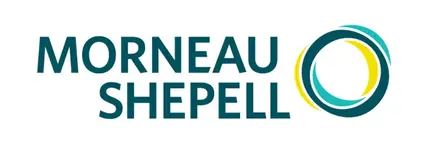What gets me most excited is my job: to do interesting work with interesting people
—Stephen Liptrap—
My time with Stephen made clear what is behind his success: he has produced specific outcomes consistently throughout his career, he has taken on projects out of his comfort zone, and he backs his success with an attitude of “I can take on and learn anything”.
In each of his previous roles, Stephen has worked diligently to be a part of developing the organization’s overall strategy, aligning HR to that strategy, and managing highly-efficient world-class teams to carry out the strategy.

Top takeaways from my interview with Stephen Liptrap:
- On Management: When you don’t know how to do something, enlist someone’s help who does
- On Developing Best Practices: You realize how open people are when you are interested in what they do; if they have perfected a practice, ask them how they did it, and learn from it
- On Learning and Growth: Choose to take on a role or project at a point in time when the business or industry is about to go through change
- On Teamwork: Create an amazing team you can rely on to execute the day-to-day while you focus on the strategy
- On Hiring in HR: A good candidate can articulate the business strategy, will be interested in what the firm does and how they can make it better;
- On Career Choices: You don’t need to change companies or industries to grow professionally; diversity of roles within a company can be just as valuable
- On Delivering & Gaining Trust: Go in and you deliver early on; that’s how you gain people’s trust. We get credibility when we deliver and we lose credibility when we don’t
- On Forging a Path:Do interesting work with interesting people; do what you love with the people who you love doing it with.
The following is an in-depth interview with Stephen where he shares his career journey and exactly how he achieved his success.
Amanda: You have such an interesting career path. Was it strategically planned or was it good luck?
Stephen: Probably a combination of both, to be honest. It started way back in high school, wanting to be an accountant. While attending Western’s business school, I realized that it was going to take me a long time to achieve this, and I wanted to make a difference quickly. So, in my last year, I switched from accounting to marketing. Upon graduation I ended up joining Dylex, a leading Canadian retailer at that time. They hired me and another business grad with the mandate of going into the company and rotating departments. They realized that their whole employee base at the time grew up in retail and that they didn’t really have folks from the outside. They put us through a 9-month store manager training course in six weeks, and then we were literally running a store with a $30-50M dollar budget and a staff of 30. I ended up in Fairweather, a women’s clothing store, and laughed as I couldn’t put a shirt together with a matching bottom to save my life. The biggest lesson I learned was when you don’t know how to do something get someone’s help, so I hired an Assistant Manager who could compensate for my lack of ‘women’s style’.
From there, interestingly enough, they had a new head of HR join the organization. He was touring the store one day and said to me: “Hey, did you ever think about joining HR?.” My answer was an immediate “no.” He continued: “But you’ve got an opportunity to come in, create things that will make life better for the people in the store: how we train new store managers, how we develop people, how we put in place suggestion programs? Why don’t you come for a year and try it out?”
After our conversation, I left the store for Head Office and it was great. It was project management and we just rolled out new performance management systems taking into account employee suggestions. I had no idea how to do it but I did know that when I don’t know what to do there are people I can learn from. For me, it was about picking up the phone. I called Disney, as at the time they had the best employee suggestion program in the world, and asked for help. Luckily they were open and shared everything. We copied their methodology with their permission and rolled it out immediately. I made the same cold calls to other organizations for other best practices, and I was amazed that every single one was happy to share their experiences. I learned how open people are when you are truly interested in what they do.
Amanda: Tell me about your time at NCR and ConAgra Foods
Stephen: At the time Dylex had a lot of change happening and questionable future. I saw an ad in the newspaper for NCR, a big global organization, well-known and that had been around for 100 years. It just seemed like a fantastic opportunity for an HR role and I applied. That’s how I got into the world of high-tech.
I spent 7 years at NCR, twice. My first 7 years was literally learning HR. It was time in recruitment, in compensation, benefits and pensions.
Amanda: Did you enjoy that?
Stephen: I did. I went into a generalist role, and really enjoyed it. Then I was having a meeting with our head of HR and he said to me: “Have you thought about what you want to do next?” I said “No, but let me think about it.” Luckily, the next day I was having lunch with a mentor of mine and I said, “my boss asked me what I want to do. What do you think?” He said, “Well you should get into pensions.” to which I replied “WHAT?
I’m in my 20’s, what are you talking about?” He said “Well, within the next 18 months, every pension law is going to change. Go do that for 18 months to 2 years and you’ll have learned like you would learn nowhere else.”
So, I went back and said “I want to get into pensions!” and it was one of the greatest experiences I’ve ever had. Picking a role at a point in time when the environment was going through change helped me to learn so much. It was in that time of change that we had an ability to really make an impact as the company moved from a Defined Benefit to a Defined Contribution plan. In that 7-year period, I became Head of HR for Canada. It was a great role in a good-sized organization (a few thousand employees).
We then got bought by AT&T and I got a ton of M&A experience. I think we bought 30 companies and sold 5 companies. Then AT&T decided to split into 3 companies, at which time I had opportunities to choose between them all and I was trying to figure out what to do when this software company by the name of “Symantec” came calling and they had just bought a company. It was software and they were looking for someone to head up Canada and the east coast of the U.S. It seemed like a great opportunity. So, I left NCR and joined them. I did that for a year and as you can imagine, this thing called “email”started showing up. Faxing into PC’s started going down and they started pressuring me to move to their headquarters in California. I had a young family at the time and at the same time NCR was pressuring me to come back. I decided to go back to NCR, which was the second of the 7 years, and it was all global HR roles, starting with Canada, then Caribbean/Latin America, Asia and Europe. It was really a 7 year period of learning HR on an international scale.
Just as I started working 1-2 weeks a month from NCR’s headquarters in Dayton, OH, I received a call from a search firm stating ConAgra Foods, a $20 Bn company, was looking to grow their international business. I met their new head of international and decided to join him.
I spent the next 6 years there, building the team, hiring a new CFO, and turning $200 million revenue into $1.5 billion! It was a phenomenal journey. I spent 50% of the time on a plane, setting up a joint venture in India and opening up operations in China. I remember the first time going to China, we wanted to hire a President for Asia. We had nobody on the ground. I was literally meeting people in my hotel room and trying to talk them into joining us. And we did.
After 6 years, a new CEO came in and really wanted to focus on the U.S. To continue required a move to the US, so I started taking some other calls.
The market was pretty hot at that point in time. I was really close to a couple things and then Alan Torrie & Bill Morneau called and said “Hey, we’ve got this great Canadian company, do you want to come join us?” I said no, as it was too small. And there was no global aspect. I’d been doing global for 15 years and really enjoyed it.
In the end, I was enticed by the opportunity to put two great companies together (Morneau Sobeco & Shepell-fgi) and potentially move back into a business role. I joined Morneau Shepell as the head of HR, and after 18 months, I became the General Manager of Shepell, which I did for 6 ½ years. I moved into the COO role in 2016 and then the CEO role a couple months ago.
Amanda: Out of curiosity did anyone help you through all of this? Talk to me about mentors.
Stephen: I would say there are groups of people that have been absolutely amazing. Probably the thing that’s helped me the most is working for some of the most incredible CEOs in my life. They’ve all given me opportunities to do things that had nothing to with HR. I remember when I was at NCR there was this gentleman Frank Farrell, he’s since passed away but he was absolutely incredible. On his first day he called in the CFO and I and said “I’m going to spend all my time out with customers, and I want you guys to run the office while I spend all my time figuring out how to grow this business.” Ian Troop who I worked with at ConAgra was also a big mentor. We had this logistics issue that was costing us millions of dollars in Mexico within our supply chain. He said “Can you jump on a plane tomorrow, go down and solve it?” It was project management; getting the right people in a room and white boarding the issue. Figuring out what we’re going to do about it and how to hold people accountable. It had nothing to do with HR but it was an opportunity to go in and actually have a chance to impact the business differently. When I was talking about opening up in China, Ian wasn’t with me. He said “You go over there and find the right person. I’ll meet him later. So it was really great CEO’s that just gave me a chance to do things that had nothing to do with HR. They would say that they liked the fact that I was happy to jump in, things and make a difference.
The other part was that I was lucky enough to always have amazing teams that I could let do a lot of the tactical work. I could really focus on the bigger strategic things that would actually move the business forward. Probably the way I think about HR is it is an opportunity to leverage talent to advance a business strategy and business agenda. It actually has nothing to do with HR, it just happens to be that talent is probably the biggest lever you’ve got to move a business forward. When you’re in HR you actually have an opportunity to pull that lever.
Amanda: Was your alignment with people who gave you that autonomy strategic on your part?
Stephen: I think it was purposeful because I remember sometimes being in interviews and I remember one was a large global investment management firm and they were looking for head of global HR. We had really good conversations. What I said to them part way through the process was “I think we can leverage the HR team to actually help you assess companies that you’re thinking about buying. Don’t just have us be HR. Have us actually use our internal HR team to do an assessment on how it would fit.” They were not interested at all. In my view there is an opportunity to actually leverage the HR team”. Therefore, passing on that opportunity was an easy decision. I like companies and people that give me that opportunity.
Amanda: That’s interesting – by sharing how you view HR, people in your hiring process will self-select in or out.
Stephen:Yes! You’re going to chase away a whole bunch of people because they’re not wanting to buy in, but those aren’t the people you want so, what a great test! You need people who have what you don’t have or who have what you’re not strong in so you don’t have to waste your time.
Amanda: I am really curious, what outcomes must an HR executive leader produce more often – consistently – to develop a profile as a candidate for the CEO?
- Help to clearly draft and put in place the overall strategic plan. I really think that HR is in a unique position to grab on and take hold of the strategic planning process and actually help lead the organization through it. So much of getting a strategy accomplished comes from people.
- Once you have the business’ strategic plan and you come up with the HR strategy or talent plan to support it, I think it’s making sure that it is clearly measurable and it’s not just picking up wishy-washy things, but things that are actually going to move forward the overall strategy in a very measurable, demonstrable way. I think that too often HR goes off with their HR team and creates the HR strategy and it’s hard to necessarily tie it into the business strategy. It’s not necessarily measurable from a business standpoint. I think in this day and age there’s probably nothing more important than talent. It’s got to be a very articulated strategy around talent, from an acquisition and retention standpoint.
- I think an HR team needs to figure out how to be world class. When I say that I mean it’s the balance of focusing on the right things and getting the right things done. But also, doing it in the most efficient way you can. It’s not about coming in and getting the largest HR staff and the largest budget you can. I’d much rather see the team say, “How are we going to get the right number of people?” Smaller is usually better. Getting them to focus on the things that are going to make the biggest difference and take the rest of the stuff and automate it. It drives me nuts when you see people start with “My team is X size” or “I spend so much”. It’s more about the ego about how big their HR team is rather than about how much difference they’re making to the business.
I’ve always used the example of performance management because I think it’s a great one. If I hired somebody to only do performance management, we’d have the very best leading-edge performance management system in the world. It would probably be the most convoluted, complex thing that no manager is ever going to use and spend time on. Whereas, if I give someone performance management as part of their job when they’re doing a whole bunch of other things, they’ll probably create a very efficient process that managers out there are more thrilled to use. To me, that’s an easy example. You can have a million competencies and create all these models and do all of this, but is some manager with 25 direct reports in a call center actually going to implement that and put that in place? It’s back to my retail days, where you’ve got store managers managing very large staffs. “How do I give them feedback? How do I develop them? How do I separate out the really good ones? How do I identify them early and then how do I move them into something else?” It’s got to be really efficient and I need to be on the floor with the customers, I don’t need to be in the back office trying to fill in these forms for somebody in head office.
Amanda: So you recently spoke at a conference and were asked the same thing: How does HR get to the table?
Stephen: It was really interesting. I spoke on a panel a while ago for 100 CHRO’s and addressed this: The way I thought about it was, when I was in the HR roles I was in, I never understood when I kept hearing about “How can HR get to the table?” because the network I had and every single HR person I was in touch with were always at the table. It was just obvious. I could never understand that question until I moved into running the EFAP (Employee and Family Assistance Program) business at Morneau Shepell. I got an opportunity to go out and meet some amazing HR leaders. Usually when I meet with a client, I start with questions around their business strategy, their HR strategy, and how one supports the other.
What was interesting was there were some amazing answers, but I also found some HR leaders couldn’t articulate the business strategy. When you can’t start with articulating the business strategy, it gets really hard to be effective from an HR standpoint.
Amanda: Do you think, looking back, that you needed the operations piece to get to the CEO role?
Stephen: I think for me it didn’t matter what role was, it was the opportunity to help the business move forward. I think all of us are a combination of the experiences we have and the more diverse experiences you have, probably the better. I’m glad for me that I had the opportunity to work in retail, high-tech, CPG (Consumer Packaged Goods), because I think each one brings something very different to the table and I’m glad I got to see those different worlds. For other folks, I think you can get there without that, but I know for me it was really good.
Amanda: So Morneau Shepell is a people oriented business, therefore it’s more a natural transition from HR to CEO. Do you think other industries would open up that avenue just the same? I’m wondering if it has nothing to do with the industry and whether it is really based on who you’re aligned with, what they think HR can do, and your strategy.
Stephen: I think you said it perfectly. I don’t think it’s the industry. A diversity of experience is key, whether within the same company that has undergone tremendous change, or across industries or across companies.
Amanda: Do you get push back because of the way other leaders see HR? Is it hard to get buy-in before you get to prove yourself because of the way other people would see HR as a service?
Stephen: I guess I just have a belief that if you go in and you deliver early on, that’s how you gain people’s trust. We get credibility when we deliver and we lose credibility when we don’t. I do think it comes down to results at the end of the day. An old boss who once said to me, “Great excuses with poor results does not equal success.” I thought that was pretty true in a lot of cases. I do think you have to deliver at the end of the day.
Amanda: Last question, what’s next for you and the business?
Stephen: I think we are in one of the most incredible businesses at one of the most important times. I go back to how the purpose that we’ve created and the employees created here is about improving business and improving lives. We think about how often we wake up and actually get a chance to make a difference in people’s lives and do that every single day. I just get so excited by what we do as an organization and where we can go. The next part for me is, aside from banks and Telco’s and a couple of regulated industries, we’re one of the larger Canadian organizations with a billion dollar market cap. We’ve got a global EAP business. We’ve got an Administrative Solutions business that is thriving in the U.S. and growing very quickly. As a business, we’ve got a tremendous amount of runway and a tremendous amount of runway to live our purpose in improving business and improving lives. I’m just fascinated by where we’re going to be able to take this organization and what we’re going to look back on in a few years and say, “We created that.” It’s an amazing story how far the organization has come already. I think we’re on the cusp of being able to do more. To me, that’s just really exciting.

About Stephen: Stephen Liptrap is President and Chief Executive Officer of Morneau Shepell. His responsibilities include the development and execution of the Company’s overall strategic direction and leading the organization to achieve both its short-term and long-term business results. Mr. Liptrap first joined the Company’s senior executive team in 2008, bringing with him more than 25 years of senior executive experience in the high tech, consumer packaged goods and retail sectors. In 2010, he was appointed Executive Vice President and General Manager of Morneau Shepell’s largest business unit, Employee Support Solutions. Then in July 2016, Mr. Liptrap was appointed Chief Operating Officer, responsible for leading the Company’s business operations and functions. Mr. Liptrap has served on the HR Committee for the 2015 PanAm Games, the Canadian Board of Directors for NCR and the Pension Board for Europe for a large technology company. He is on the National Committee for CAMH’s 150 Leading Canadians for Mental Health. He is a frequent speaker and thought leader on HR issues facing organizations today. A member of the Human Resources Professionals Association, Mr. Liptrap holds an Honours Business Administration degree from the Ivey Business School, Western University, and is a recent graduate of the Harvard Advanced Management Program.

